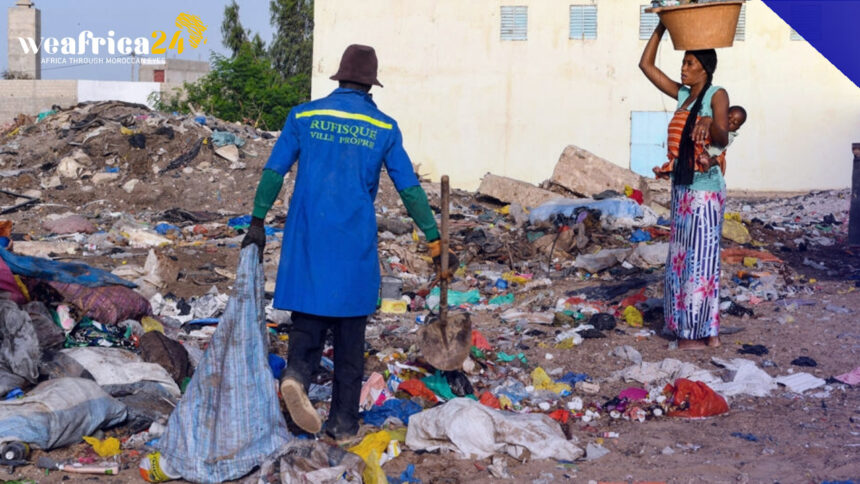A pioneering startup has been leading the charge in waste recycling for the past nine years, with the explicit goal of mitigating greenhouse gas emissions. In a city with over a million inhabitants, where waste often ends up haphazardly strewn across landfills, the task of sorting and recycling presents a formidable challenge.
Replacing the conventional garbage truck is a white pickup laden with jute sacks. Its mission is to collect recyclable waste from about ten participating businesses. “They come in with a bag for plastic, another for aluminum and metal waste,” explains Alphouseyni Bodian, the collection manager.
Within the premises of this consulting office, three large bins are labeled for organic waste, paper, and plastics/aluminum. However, upon closer inspection, the contents are invariably mixed. “It’s always complicated. If you place a bin in a company, you will never achieve perfect sorting. So, what we can do is step back and conduct awareness sessions,” he adds.
Conducting a retraining workshop and re-sorting everything becomes necessary, even for those subscribing to the startup’s services. Yet, according to Abdoul Bakhy Mbacke, the founder of Ciprovis, significant strides have been made over the nine years. “In 2014, when we started the activity, people were only concerned with the practical aspect of collection because waste was leaving their homes. When we talked about sorting, people didn’t understand us.”
With over 1,000 households and around a hundred businesses in Dakar, as well as in the cities of Mbour and Thiès, the startup continues to expand. Since 2017, it has been developing its recycling solutions, transforming paper and cardboard into egg cartons, and aluminum and metal into kitchen utensils.
However, the challenge lies in plastic, particularly PET, which constitutes 70% of plastic bottles, which cannot currently be recycled anywhere in Africa due to a lack of technology. Polypropylene can find new life in furniture, but PET remains a significant hurdle that demands innovative solutions.







